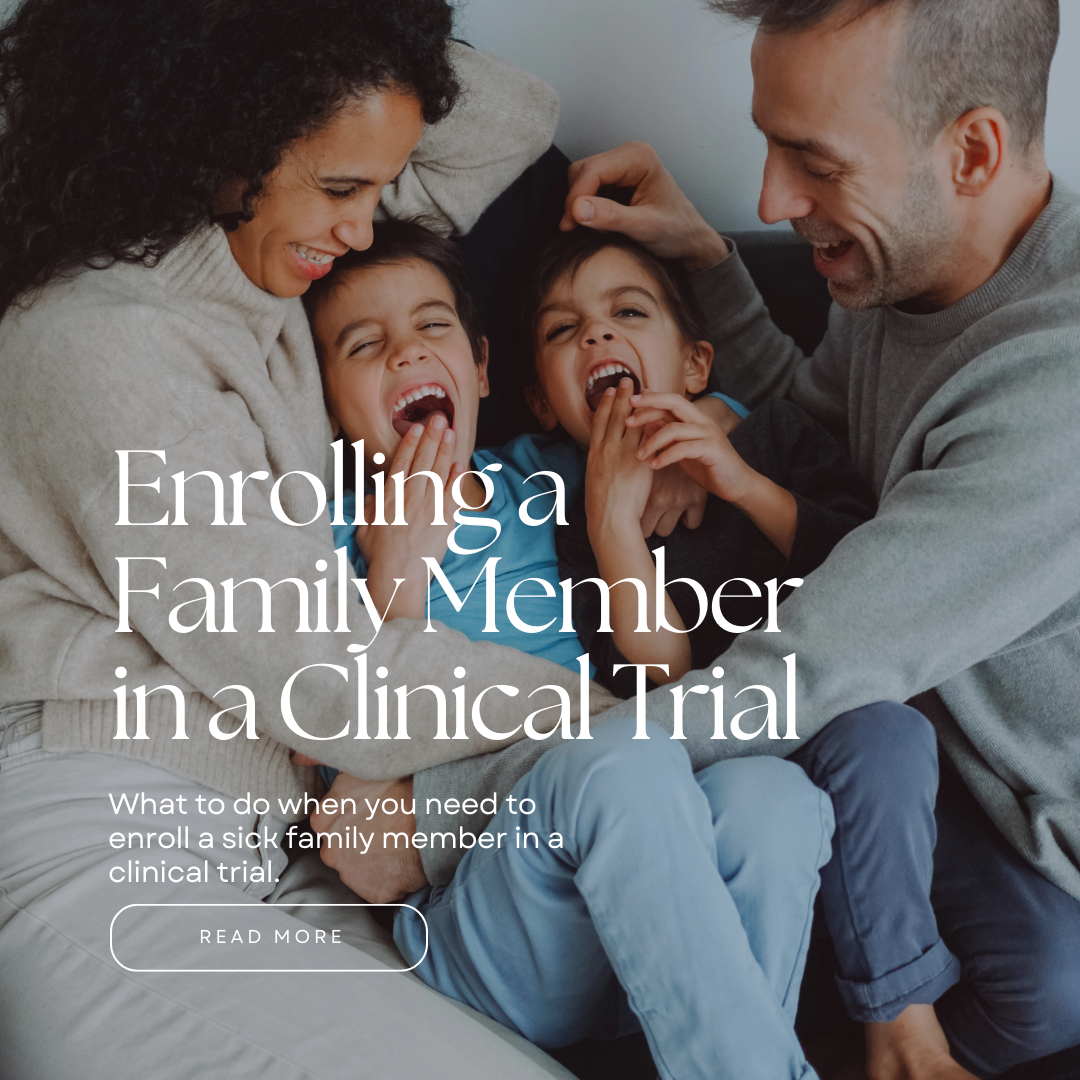It is not always the easiest when a loved one needs any form of treatment. As a family member and loved one to those that may be ill or have a diagnosis that requires some form of treatment it can be very important to become the caregiver they need. A caregiver is usually the person closest to the participant.
The first step is finding a clinical trial that is the best fit for your loved one. It is important to read into the study details as well as what is required of both the caregiver and the study participant. Remembering that there can be extensive appointments and travel depending on site location.
First understanding what clinical research is and the different phases there are, is a good starting point.
What is clinical research?
Clinical research is a study of illnesses, conditions and overall, the health in humans. There are two types of clinical research. Observational studies which studies people who are usually healthy and do not consist of a medical device or drug and clinical trials in which test surgical, medical, or behavioral intervention in people. In the case of helping a sick family member or if you are sick yourself. A clinical trial may be the best option as it is focused on medical treatment for a diagnosis.
Understanding which phase trial is fit for you or loved one
Phase 1
This phase tests a device or drug on a group of people ranging from about 20-80 people. In phase 1 researchers are looking to test the safety of the device or drug. This can include the dose of the drug and any side effects that may occur.
Phase 2
Phase 2 will have a group of approximately 100-300 people and researchers in this phase continue to test the safety and evaluate side effects, but the focus is to determine if a drug or device is effective.
Phase 3
This trial phase tests a group of hundreds to over a thousand people. Phase 3 gathers information about the safety, effectiveness, different dosages, and compares to other drugs and treatment options. If the results from this phase prove that the drug or device is beneficial for the health condition the trial is for, then the FDA will approve.
Phase 4
Phase 4 happens after the FDA has approved the drug or device. Large, diverse populations aid in the effectiveness and safety of the treatment.
Pros and cons to a clinical trial | Learn More About Pros and Cons from our Clinical Trial Myth Busters
Pros:
- Access to medication not yet FDA approved
- Access to medical professionals who specialize in the study participant’s condition/disease
Cons:
- Study drug possibly not working for the study participant
- Possible side effects from the study drug
- Receiving a placebo (inactive study drug) versus the active study drug
What will be required of a study caregiver:
- Report side effects
- Monitor physical or cognitive changes
- Getting participant to all scheduled appointments
- Monitoring medication compliance
Frequently Asked Questions:
- Are there any expenses myself or my study partner must pay?
- It is best to ask the research team if there are any expenses related to the trial. Most clinical trials do not have any out-of-pocket costs related to the study.
- Do any tests or procedures performed during the study go through my insurance?
- When enrolling into a clinical trial the study team does not take any insurance information. However, your demographics, and medical history are taken at screening.
- How long would I participate in a clinical trial?
- Each clinical trial is different when it comes to how long a participant will be enrolled and taking part in the study. However, many trials allow for a participant to stop the trial at any moment. When finding a clinical trial, asking the length of time and how often appointments are would give you a better idea of the length of the trial and what is entailed.
A study caregiver can determine the study participant’s success in a clinical trial. For more information on clinical trials, go to our study page and enroll today.

